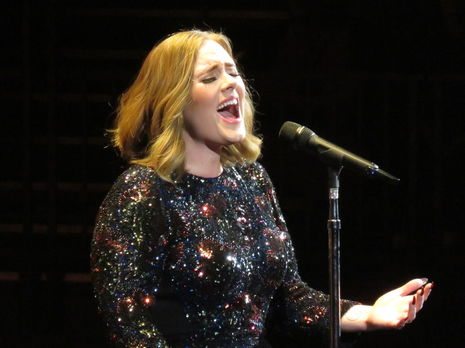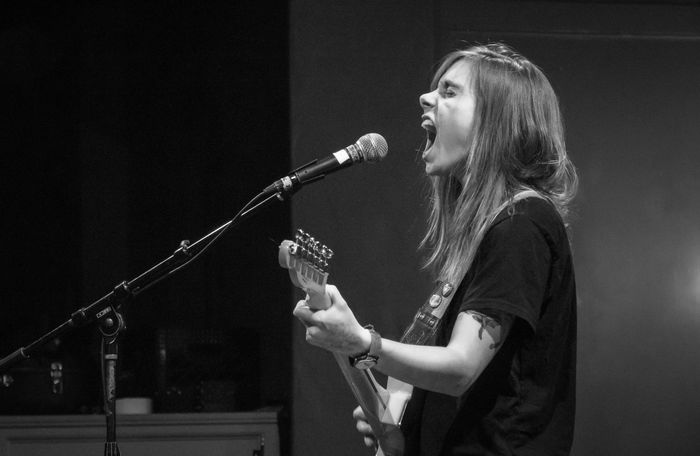“Adele at her most confident”: 30 album review
Staff Writer Joe Bray admires the intimacy and personality of Adele’s latest album

Since the lingering, cyclical, longing piano chords of “Someone Like You” accompanied Adele’s lonely singing at the BRIT Awards 2011, Adele has solidified herself as the sole singer for heartbreak. She unifies uniquely, capturing a room or stadium. As my flatmates and I gathered in my room, watching the clock strike twelve, we delved into the cultural phenomenon which surrounds an Adele release. Transported back to the child at Christmas, Adele returns as the voice of a generation.
Releasing a divorce album 5 years after a Grammy-winning album must be daunting; Adele achieves this with seeming ease. “Easy On Me” embraced number 1 comfortably, scoring the biggest week of streams for a song ever, and debuting on the hot 100 after only 5 hours of tracking. The song was explosive but familiar, reaffirming that Adele still controls the niche she has carved. This niche is upheld by Adele’s frequent revisiting of past romances – 30 follows this trend. “Hello” was self-aware of her retrospection, and 30’s introduction track “Strangers By Nature” is no different. “I’ll be taking flowers to the cemetery of my heart/ For all of my lovers in the present and in the dark/ Every anniversary, I’ll pay respects and say I’m sorry”. As the song breathes, we are comfortably relaxed into 30’s familiar lyricism and Adele’s voice, sprinkled with new sounds. This is to be expected and celebrated after five years. Seasonal, it sounds outrageously like a John Lewis Christmas advert song, and is a fantastic opener, laying the confessional tone.
“Adele’s personality is now as loud as the music”
Adele’s heart has been timelessly broken in public, but her personality always had a separate mystique. Infamously private, she shares universal truths through her music, whilst hiding in between releases and avoiding overtly personal discussions. On 30, Adele diverts from this formula. From high calibre interviews to publicly lamenting divorce, Adele’s personality is now as loud as the music. She even admitted that she almost recorded a new album as 30 was too personal. She was right, it almost feels invasive listening to such an intimate release, which features spoken words to her child, and lost ramblings broken with sobs. Mirroring Charli XCX’s breakdown in “enemy” on how i’m feeling now, lockdown appears to have encouraged a trend of personal, spoken laments. It is wonderful to hear an artist so raw, but at times speech consumes the song, evident in “My Little Love”, which feels a bit too heart-wrenching.
The album is much more than sadness though. With “Easy On Me” as the foundation, I expected a cathartic explosion of post-divorce voice breaks and belting. The result is far more optimistic, grandiose and self-assured; this is Adele at her most confident, even though the writing is seasoned with divorce. The comedic “I Drink Wine” is another display of her personality becoming more present in her music. It is hilariously tongue-in-cheek, particularly when performed live at her One Night Only concert. Adele might have broken in parts of this album recording, but her contagiously silly personality remains.
A repetition of her past catalogue, the confidence of “Rumour Has It” and “Send My Love (To Your New Lover)” pervades in “Oh My God”. Perfect pop, Adele employs contaminating rhythms and vocal manipulation, combining modern production with a timeless groove. Yet, as the tracklist progressed, there was an increased yearning for the traditional, piano ballad Adele. “To Be Loved” achieves this to a staggering height. Her vocal performance is at its best, as the song staggeringly builds more through her voice than instrumentation. This was the ideal ode to the younger Adele of 21.
Critics of the album have called it similar to her previous releases. At times there is a safety, but this is inarguably a quietly rebellious album. “Can I Get it” sees a Radiohead inspired guitar loop, with a whistling chorus, starkly departing from 25. The wobbly vocoder and 60s vocal layering on “Cry Your Heart Out” is another departure, although a classic picked bass in the verses is an ode to her earlier work. This song is a display of the weaker elements of the album, but I commend the subtle upheaval from Adele. This is furthered by the jazzy “My Little Love”, a beautiful prelude to the magnum opus outro “Love Is a Game”. The former is wonderfully expansive, deeply confessional and performatively orchestrated, but the latter is stuffed and stodgy, testing the ground on which the final track runs.
This oxymoronic, stodgy starkness is the one element that stops this album from being perfect. Five of the twelve songs are over six minutes long. When done right, this creates some of Adele’s greatest work. But running at over 58 minutes (excluding the bonus tracks), Adele’s quiet rebellion is sometimes a little too bloated. That being said, this record is a wonderful collage of classic ‘Adele’ (her name seemingly now a stand-alone, concise adjective for a particularly raw form of pop). Whilst departing from her previous work, 30 remains a bold addition to Adele’s timeless catalogue.
 Comment / College rivalry should not become college snobbery30 January 2026
Comment / College rivalry should not become college snobbery30 January 2026 Features / Are you more yourself at Cambridge or away from it? 27 January 2026
Features / Are you more yourself at Cambridge or away from it? 27 January 2026 Science / Meet the Cambridge physicist who advocates for the humanities30 January 2026
Science / Meet the Cambridge physicist who advocates for the humanities30 January 2026 News / Cambridge study to identify premature babies needing extra educational support before school29 January 2026
News / Cambridge study to identify premature babies needing extra educational support before school29 January 2026 News / Vigil held for tenth anniversary of PhD student’s death28 January 2026
News / Vigil held for tenth anniversary of PhD student’s death28 January 2026











